History and Biblical SignificanceThe sixth letter of the Apostle John to the Seven Churches of Asia Minor was the letter to Philadelphia. The city lay along a fault line, and is subject to frequent and sometimes powerful earthquakes, making the task of recovering the past in archaeology a difficult one. The city may have been founded by Eumenes King of Pergamum (197-160 BCE) in the 2nd century BC, and the name was likely after his brother Attalus (later reigned 159-138 BCE), who through loyalty won the title Philadelphus (brother love). The city was handed over to Roman rule in 133 BCE on the death of Attalus III. The city may well have been founded for a social purpose. Ramsey states that the city "was a missionary city from the beginning, founded to promote a certain unity of spirit, customs, and loyalty within the realm..." Located along the Cogamus River, the valley connects with the Hermus River basin to the northwest, where Sardis stood 26 miles away. The valley road was the lifeline connection between the Phyrgian territory to the east and the harbors of the Aegean to the west. The earthquakes are amply recorded in history, a severe on occurring in 17 CE, which destroyed this city and eleven others. Sardis fared worse from the initial quake, but Philadelphia shook more frequently from severe aftershocks, traumatizing the population. Strabo noted the city was "ever subject to quakes." After Emperor Tiberius aided in their rebuilding, it took the new name of "Neocaesarea" (New Caesar). Under Vespasian's rule (69-79 CE), it changed names to "Flavia." By the third century, paganism had held on in the face of a Christianizing Empire, and the city became known as "little Athens" for its dedication to deities. None of these names or epithets lasted, and today the modern city is called Alasehir. And just what did Jesus Christ (Revelation 1:1) prophesy about the ancient city through The Apostle John while he was on Patmos? "To the angel of the church in Philadelphia write: 'These are the words of Him Who is holy and true, Who holds the key of David. What He opens no one can shut, and what He shuts no one can open. I know your deeds. See, I have placed before you an open door that no one can shut. I know that you have little strength, yet you have kept My Word and have not denied My Name. I will make those who are of the synagogue of Satan, who claim to be Jews though they are not, but are liars - I will make them come and fall down at your feet and acknowledge that I have loved you. Since you have kept My command to endure patiently, I will also keep you from the hour of trial that is going to come upon the whole world to test those who live on the earth.' 'I am coming soon [see The Return Of Jesus Christ]. Hold on to what you have, so that no one will take your crown. Him who overcomes I will make a pillar in the temple of My God. Never again will he leave it. I will write on him The Name of My God and the name of the city of My God, the new Jerusalem, which is coming down out of heaven from My God; and I will also write on him My new Name. He who has an ear, let him hear what The Spirit says to the churches." |
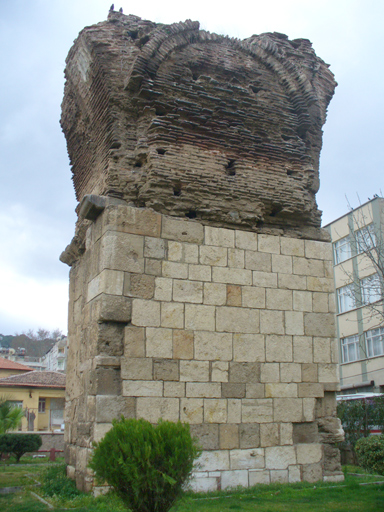 Because the city was in an earthquake-prone area, not much remains to be seen of ancient Philadelphia. What might still exist lies buried, for the most part, under the modern city,now called Alasehir. What remains are the three pillars of the Byzantine Church of St. John the Theologian.
Because the city was in an earthquake-prone area, not much remains to be seen of ancient Philadelphia. What might still exist lies buried, for the most part, under the modern city,now called Alasehir. What remains are the three pillars of the Byzantine Church of St. John the Theologian.
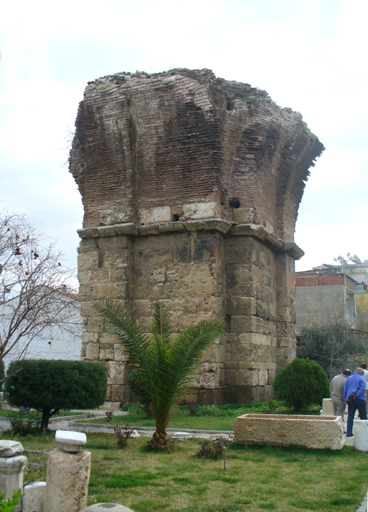 .
.
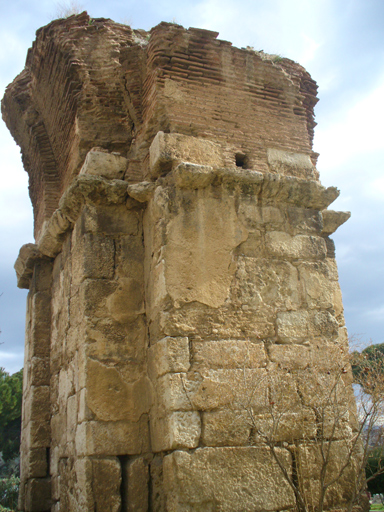
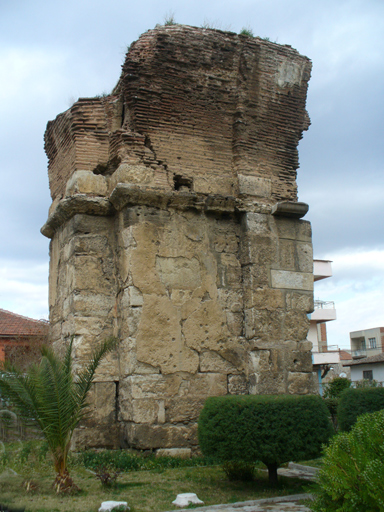
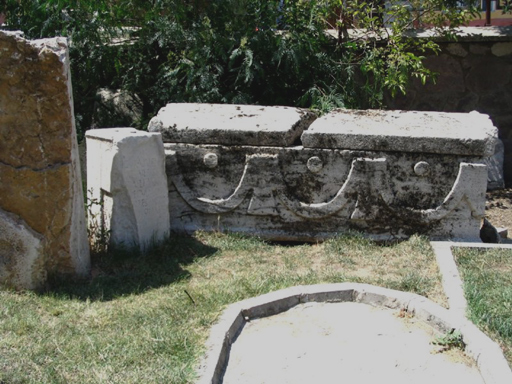 A sarcophagus was at this site.
A sarcophagus was at this site.
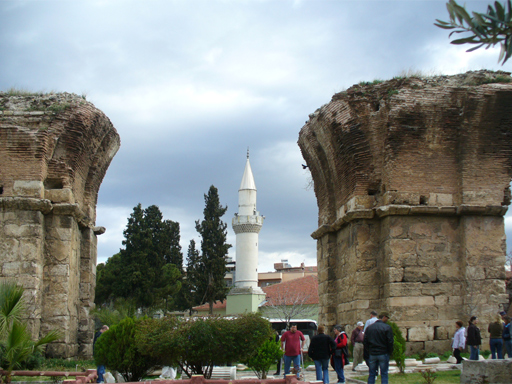 An interesting contrast with the pillars of this ancient church framing the gleaming minaret of a mosque.
An interesting contrast with the pillars of this ancient church framing the gleaming minaret of a mosque.
Our next stop is Sardis.
